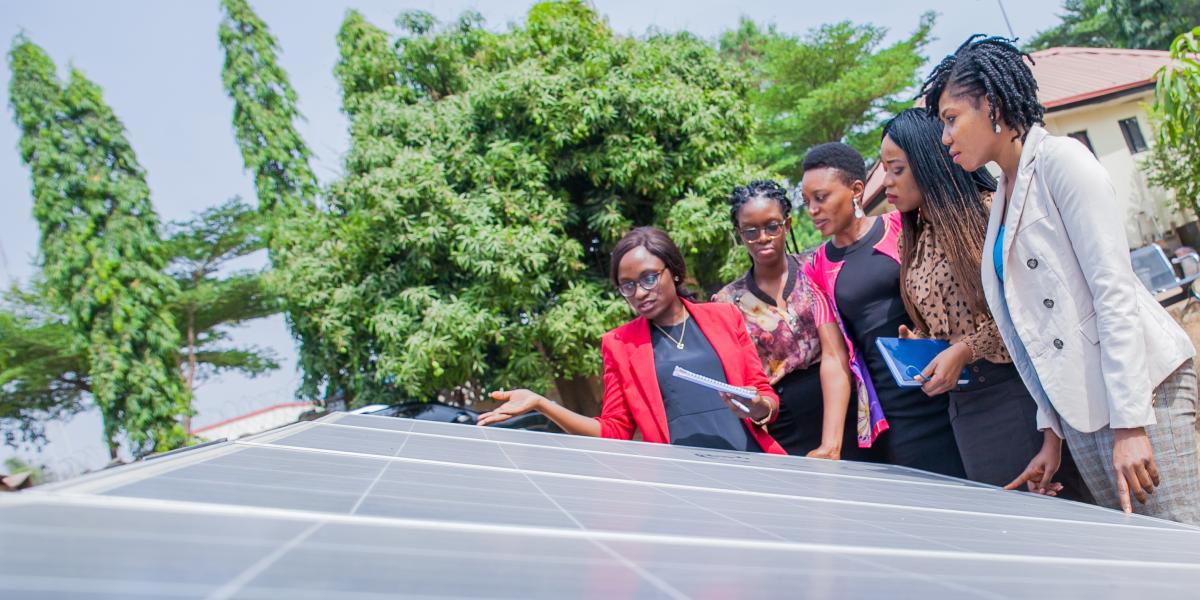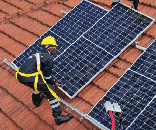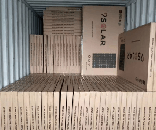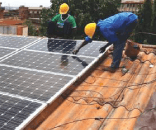In a world increasingly focused on sustainability and cost-efficiency, Nigerian businesses are turning to solar energy as a reliable power source. As the demand for solar panels rises, staying informed about the latest solar technology trends is crucial for businesses looking to harness the full potential of solar energy. In this article, we will delve into key solar panel technology trends that can empower Nigerian businesses to make informed decisions and stay competitive in the dynamic energy landscape.
Top 7 Solar Panel Technology Trends In Nigerian
1. Enhanced Efficiency in Solar Panels
One of the most prominent trends in solar panel technology is the continuous enhancement of efficiency levels. Traditional solar panels typically offer an efficiency rate of 15-20%, but cutting-edge innovations, including monocrystalline and bifacial panels, are pushing efficiency levels closer to 30%. The increased efficiency means that businesses can generate more electricity from the same amount of sunlight, leading to higher returns on investment.
2. Energy Storage Solutions for Reliability
Nigeria often grapples with power supply challenges, making energy storage solutions a critical trend. Advancements in battery technology, particularly lithium-ion batteries, enable businesses to store surplus solar energy during sunny days. This stored energy can then be used during cloudy periods or at night, ensuring a consistent and reliable energy supply that reduces reliance on the grid.
3. Smart Solar Solutions for Real-time Monitoring
Integration of smart technology with solar panels is transforming energy management for businesses. Smart solar systems come equipped with real-time monitoring and control features. Businesses can track energy production and consumption, allowing for data-driven optimization, identification of inefficiencies, and cost reduction.
4. Sustainable Materials and Eco-Friendly Practices
Sustainability is a top priority for businesses. Solar panel manufacturers are responding by using eco-friendly materials, recycled components, and greener manufacturing processes. For businesses in Nigeria committed to sustainability, these panels align with corporate values while delivering clean energy solutions.
5. Flexible and Lightweight Solar Panels
Innovations in solar panel design have led to the development of flexible and lightweight panels. These panels seamlessly integrate into various architectural and structural designs, making them ideal for businesses seeking to adopt solar energy without significant infrastructure alterations.
6. Cost Reduction and Financial Incentives
Advancements in technology, coupled with increasing demand, have led to a gradual reduction in the cost of solar panel installation. Nigerian businesses can leverage this trend, along with government incentives and financing options, to make solar energy solutions more affordable and financially viable.
7. Durability and Longevity
Solar panels endure harsh weather conditions, making durability a key concern. Recent developments have yielded more robust and long-lasting panels designed to withstand extreme weather. This results in reduced maintenance costs and a longer lifespan, enhancing the overall return on investment.
Conclusion
In conclusion, the rapid evolution of solar panel technology offers exciting opportunities for Nigerian businesses to adopt clean and sustainable energy sources. Staying updated on these technology trends and collaborating with reputable solar providers empowers businesses to not only reduce energy costs but also contribute to a greener and more resilient future.
As you explore the integration of solar panels into your business operations, remember that making the right solar solution choices can enhance your energy efficiency, reduce environmental impact, and position your business for long-term success in the Nigerian market.
For more insights and guidance on implementing solar energy solutions tailored to your business needs, reach out to 9Solar Technology, your trusted partner in sustainable energy solutions.











